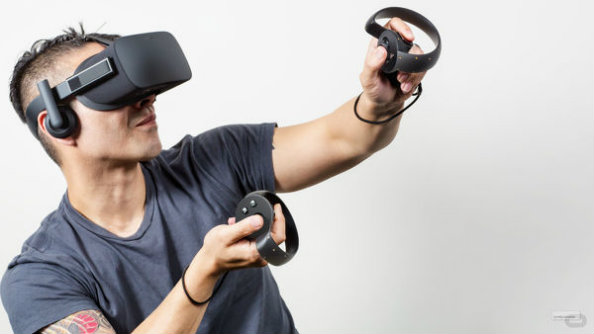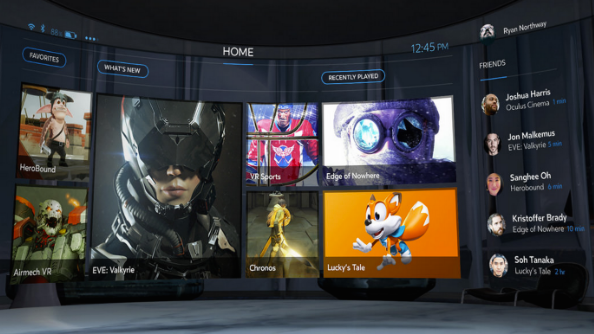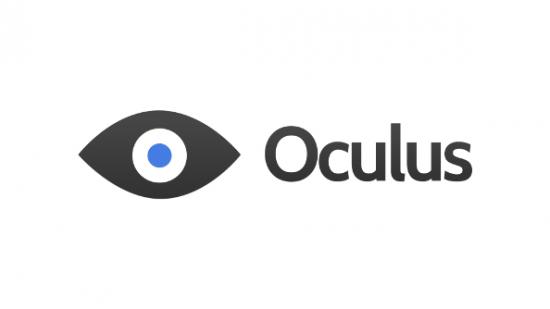2016 is shaping up to be an absolutely crucial year for virtual reality, and already we’re starting to get a clear idea of who the major players are, when their hardware is arriving, and – crucially – how much it’ll cost. Palmer Luckey’s Oculus blinked first, announcing a $600/£500 pricing. And that’s caused a bit of a stir. We thought we’d ask voices throughout the industry what they make of the price point, and what the future holds for Oculus and its competitors.
Prefer to gaze into the future from a software perspective? Check out our upcoming PC games feature.
First off, we spoke to Jon Peddie, president of tech and gaming market reserach firm Jon Peddie Research, and Kathleen Maher, vice president of JPR and editor-in-chief of TechWatch Report.
So, does the Oculus’s price point seem fair? And will it hold fast at $600 for the forseeable future? Peddie responds: “It’s fair in that its probably being sold with very thin or no profit. It’s a complicated thing to make. It will stay at that level for a while.
“And to that you can add the hand controllers, which aren’t priced yet but expected to be $100 each, and maybe a new PC or at least a new PSU.”

Peddie also anticipates that while HTC will be unable to dip below that price point, Sony are well-positioned to do so as a platform holder: “Sony can sell at a loss and make it up on games as they’ve done with the consoles. HTC can’t do that.”
“The price point is a problem,” Maher tells us. “But I’m assuming that Oculus engineerings are absolutely killing themselves to get the price down as soon as possible. However, [I’m] assuming the people at Oculus and Facebook have to be looking at very long term evolution. New games and experiences have to evolve [to find] new story telling approaches.”
Whether we see a price drop in 2016 or beyond, it’ll be that initial $600 price tag that determines the Oculus’s initial consumer uptake. At a glance, it doesn’t appear that the unexpectedly steep expense will hurt it – the first batch of headsets sold out within quarter of an hour of going on sale. But how does the forecast look in the longer term?
“VR is a snack,” says Peddie, “not a long term entertainment [prospect]. As such users won’t ante up the cash, with the exception of raved and idiotic game players like you and me.”

That doesn’t paint a picture of a particularly sustainable business. If VR is indeed a snack, and it’s priced in the upper echelons beside similar luxury home entertainment products that offer long-form experiences and enjoy a wider software base, where will Oculus find a firm footing in the long term? Peddie looks past the realm of gaming.
“There are a dozen really great and important applications beyond games being developed. From helping people with disabilities, and PTS, to first responders, travel agents, and virtual museums. Facebook thinks users will make 360-degree personal movies and post them like they do now with their cats. That’s a major point for you to understand – there are both passive VR and interactive VR experiences.”
Maher predicts a different route to success for Oculus, though: “I actually see more uses for mobile VR, because it’s relatively simple. Something like the Gear VR makes sense, with a price tag in the middle between $600 and free for cardboard, or $25 or so online. I like that it’s easy to slip a phone into the Gear. Yes, sometimes, I find it kind of too much of a pain in the ass to slip the phone in to the Cardboard.”
![]()
Both Peddie and Maher agree that sickness is a major hurdle for VR in general, and the solution lies in firm guidelines for content creation:
“The biggest problem is the just terrible quality you get,” says Maher, “especially on mobile. I spent last weekend looking at a bunch of pieces because I was working on an article. I felt crappy the rest of the day. I’m not super sensitive, but a lot of this stuff is really terrible. There are no guidelines for content creation. That’s something that needs to be worked on immediately.”
“Interactive VR experiences are the most problematic,” says Peddie, “because of technology (VR sickness) and the lack of compelling content.” Sickness has been reduced greatly from one DK iteration of the Oculus to the next, and one would anticipate a similar leap forwards in the Kickstarter edition.
Compelling content though, as Peddie puts it, is a problem that platform holders, major publishers, and developers will all have to collaborate on with a unified vision to strengthen VR’s chances of widespread uptake.
We’ll be talking to more industry insiders in the coming weeks to get their take on the Rift’s pricing and its chances for the year ahead.
